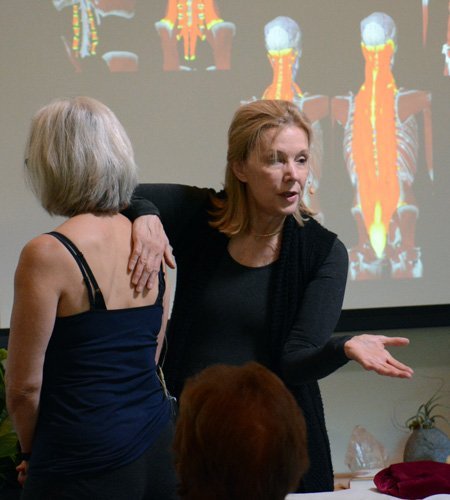A new diagnosis based on worldwide research
This blog is my attempt to synthesize the research conducted by the World Health Organization that led to official acceptance of the new diagnosis of Complex PTSD. Clinicians have long battled to add developmental and relational trauma to the already accepted diagnosis of shock trauma. C-PTSD is an important worldwide addition to clinical understanding, and will have far-reaching global repercussions.
I invite readers to add to my overview. I intend, over the coming months, to drill down into the clinical repercussions of these findings, and particularly how the therapeutic use of touch (my focus and passion) can contribute to C-PTSD healing resources.
C-PTSD Classification
The World Health Organization (WHO), in its 2018 ICD-11 (International Classification of Diseases, 11th revision), introduced the new diagnosis of Complex Posttraumatic Stress Disorder (C-PTSD). WHO introduced this diagnosis as a distinct but sibling condition to PTSD to reflect loss of emotional, psychological, and social resources under conditions of prolonged adversity. This diagnosis is classified under the category of "general parent disorders associated with stress."
Based on extensive research, C-PTSD is a more severe diagnosis than PTSD. The new diagnosis includes the symptoms of PTSD and adds a second component of Disturbances of Self-Organization (DSO) ― affective dysregulation and struggles with identity. C-PTSD comprises six symptom clusters:
A first order of three PTSD symptom clusters:
1. Re-experiencing of the trauma in the here and now
2. Avoidance of traumatic reminders
3. A persistent sense of current threat that is manifested by exaggerated startle and hypervigilance
A second order of three additional symptom clusters that reflect disturbances of self-organization resulting from prolonged exposure to adversity:
4. Affective dysregulation
5. Negative self-concept
6. Disturbances in relationships
The additional three symptom clusters reflect a loss of emotional, psychological, and social resources resulting from frequent trauma, a greater accumulation of different types of childhood traumatic experiences, and higher levels of functional impairment. Symptom endorsement rates for PTSD and DSO were equally high, suggesting that the two components of the disorder are equally important.

Countries in which the International Trauma Questionnaire has been used: Angola, Australia, Austria, Brazil, Canada, Chile, China, Denmark, France, Georgia, Germany, Hong Kong, Iran, Ireland, Israel, Italy, Japan, Lebanon, Lithuania, Netherlands, Norway, Portugal, Sweden, Switzerland, Thailand, Uganda, UK, Ukraine, USA.
The International Trauma Questionnaire (ITQ)
The qualitative distinction between PTSD and C-PTSD is supported by WHO’s worldwide research using the International Trauma Questionnaire (ITQ). C-PTSD was found in individuals who have experienced sustained and repeated interpersonal violence, rape, sexual abuse, domestic violence, traumatic bereavement, and institutional abuse, such as that occurring within foster care and religious organizations. It is also associated with multiple forms of social trauma, such as child soldiering, genocide campaigns, torture, or slavery.
The ITQ, which is still under development, is a self-report measure that was developed for the assessment of ICD-11 PTSD and C-PTSD. In its current form, the ITQ is a 23-item self-report measure with seven PTSD and sixteen DSO items.
Preliminary findings suggest that C-PTSD is common in clinical and general population samples, although there may be variations in prevalence across countries:
1. C-PTSD is a more common condition than PTSD.
2. Multiple cumulative childhood interpersonal violence was a stronger predictor of C-PTSD than of PTSD in both clinical and population samples.
3. C-PTSD is a more debilitating condition compared to PTSD with regard to survivor functioning. C-PTSD was associated with greater comorbid symptoms and substantially lower psychological well-being, suggesting a greater severity than PTSD.
4. Women compared to men were more than twice as likely to meet criteria for PTSD and for C-PTSD.
5. The most frequently endorsed symptom cluster was negative self-concept, suggesting the critical role problems in self-concept may play in C-PTSD.
Preliminary evidence suggests that the ITQ is an instrument that produces reliable and valid scores and can adequately distinguish between PTSD and C-PTSD. Future theoretical and empirical work will be required to generate a final version of the ITQ to better match the diagnostic structure of PTSD and C-PTSD and become standardized in several cultures and languages.
There is also further work to be done on test-retest reliability, the discriminant validity of the ITQ, and exploring the relationship between PTSD, C-PTSD, depression, anxiety, and substance misuse disorders. The work must be replicated in various countries and cultures, as there have been concerns about culturally bound conditions. Cross-cultural work is required to explore differences in PTSD and C-PTSD across countries with regard to prevalence, incidence, and predictors. This work is essential to enhance the cross-cultural applicability of the new diagnosis of C-PTSD.
The International Trauma Interview (ITI)
Finally, in addition to the development and validation of the ITQ, work is underway on the development of a clinician-administered diagnostic interview for PTSD and C-PTSD. This measure is called the International Trauma Interview (ITI). The development of a diagnostic interview is a critical element of ongoing efforts to assess the validity of the ICD-11 proposals, as well as to determine the effectiveness of the ITQ in identifying clinical cases.
Reference: World Health Organization, https://www.ncbi.nlm.nih.gov/pmc/articles/PMC5774423/
Dr. Aline LaPierre, PsyD, MFT, SEP is the founder and director of The NeuroAffective Touch® Institute which offers trainings in the therapeutic use of touch. She is past faculty in the Somatic Doctoral Program, Santa Barbara Graduate Institute (2000-2010). Aline is the coauthor of Healing Developmental Trauma: How Trauma Affects Self-Regulation, Self-Image, and the Capacity for Relationship now available in ten languages. She is currently Vice-President of the United States Association for Body Psychotherapy (USABP) and Deputy Editor of the International Body Psychotherapy Journal (IBPJ). For more information about her work, visit the What is NeuroAffective Touch®? page. For more information about touch trainings, visit the NeuroAffective Touch® Training page.
#Complex PTSD, #C-PTSD, #International Trauma Questionnaire, #ITQ, #PTSD, #Disorders of Self-Organization, #DSO, #Affective dysregulation










I seem unable to fi d neuro affective touch practitioners ers in uk e ireland. Could you help me?
Dear Alison, I am going to forward your message to Laura Melton. She is our student coordinator and can track down practitioners worldwide. She will get back to you as soon as possible. Sincerely, Victor Osaka The NeuroAffective Touch Institute
Thank you for your very informative blog post and I enjoyed reading it.
Just curious but by any chance do you know where we can obtain the ITI? I’ve read a few other papers that doing trials with it in foreign languages but I can’t seem to find an English version of it anywhere. All I can find is the ITQ. So I was just curious if by any chance do you know where we can find the ITI? Thanks.
The International Trauma Interview (ITI) for clinicians has not yet been adopted. Here is an NCBI paper on the subject from October 2019. https://www.ncbi.nlm.nih.gov/pmc/articles/PMC6781232/